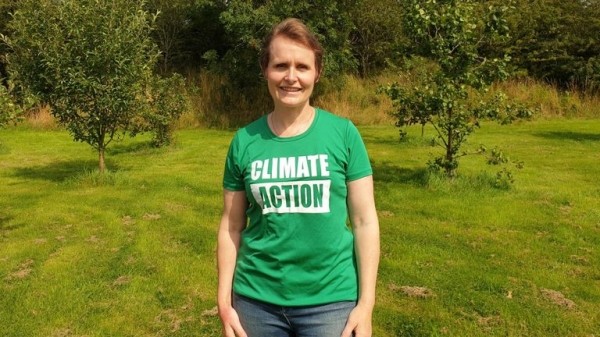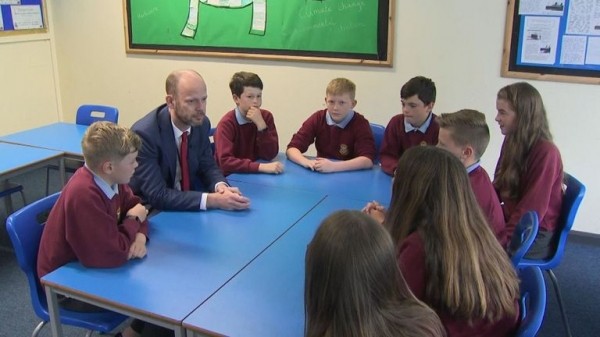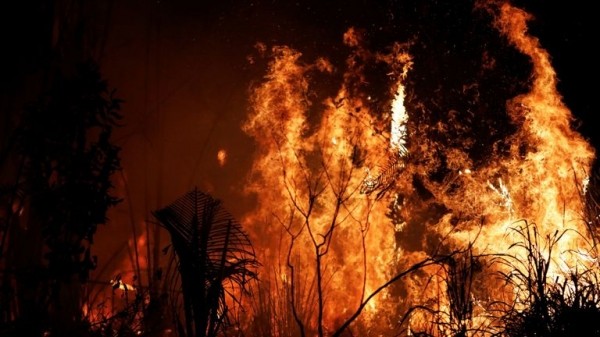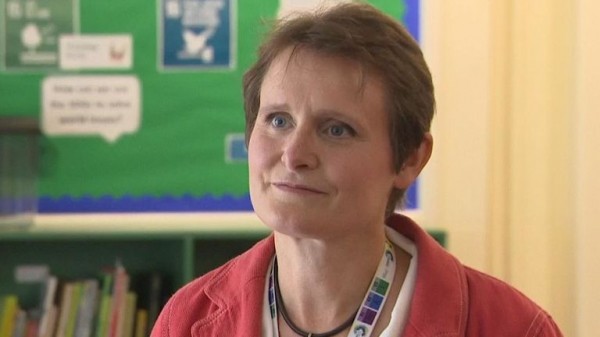Teachers are now able to train for United Nations accreditation in climate change teaching, with more than 600 sign-ups so far.

Teachers across the UK are signing up in their hundreds to become UN accredited climate change teachers at their schools.
Climate change is not a key part of the curriculum for children under 14 – but now teachers could become the next line of defence when it comes to educating kids about the dangers of the crisis.
Dr Meryl Batchelder, a science teacher at Corbridge Middle School in Northumberland, and a committed climate change activist with Extinction Rebellion, was one of the first to complete the course, and tells Sky News why she decided to take on the role.

My role as a teacher is simply to provide my students with the best possible education – one that prepares them for the future.
Recent news articles make grim reading and many pupils identify that climate change is one of the most important issues they face.
They are right to be concerned.
The evidence now seems unquestionable. Human activity is causing global heating, destabilising weather systems and, with extreme events such as Hurricane Dorian, the devastating effects of climate breakdown are already being observed.
The national curriculum in England includes a huge amount of content but an incredible lack of environmental education meaning young people, especially in cities, are often dissociated from the natural world.
In order to ensure that my pupils appreciate some of the big issues on Earth I have been linking all science curriculum topics to the United Nations Sustainable Development Goals (SDGs).
For example, when teaching about habitats we link to SDG15, Life on Earth. If we are talking about plastics we link to SDG12, Responsible Consumption. It’s a quick win and means that learning is engaging and relevant.

Sky Views: Climate change protests at Heathrow on Friday could end in tears
' I can almost guarantee there will be outrage'
One of the most powerful CPD courses I have completed is the UN accredited Climate Change Teacher course with eduCCate Global.
The course is based on online modules developed by the UN Climate Change Learning Partnership. Harwood Education has made this available and fully-funded for teachers and their ambition is to have an accredited Climate Change Teacher in every school.
Modules include; Children and Climate Change, Cities and Climate Change, Gender and Environment, Human Health, and International Legal Regime.

Once accredited, teachers have access to download or share resources on the eduCCate Global Community.
The course has given me the confidence to teach about the causes, effects, mitigation steps and possible adaptation strategies for climate change.
Teaching about climate change should ideally start in early years and extend through all key stages. It should be a thread through all subjects – from the food miles of ingredients used in food technology to the use of debates on humanitarian issues such as mass migration in RE or PSHE.
Listen to “A New Climate: We are chapter one” on Spreaker.
:: A New Climate is a special series of podcasts from Sky News Daily. Listen on Apple Podcasts, Google Podcasts, Spotify, Spreaker
The national curriculum of England doesn’t touch on climate change until Key Stage 3, and only in detail in Key Stage 4.
To overlook earlier key stages puts children at risk of misunderstanding the issue which can cause anxiety. My aim is to build on my student’s grasp of climate change and develop a feeling of shared responsibility for taking climate action.
As students get older they should feel empowered and confident enough to demand steps for climate change mitigation from politicians, industry or business.

The new Ofsted framework refers to the three ‘I’s: intent, implementation and impact.
To ensure that my pupils receive the best possible education I have enhanced the science curriculum with the intent to provide a green curriculum that considers the needs of my pupils and for global citizens.
I implement this using the SDGs and my recent knowledge gleaned from the Climate Change Teacher course.

There is significant impact and pupils understand how their actions and those of the wider society interact with our planet including effects on the lithosphere, biosphere, hydrosphere and atmosphere.
Changing the curriculum is easy but stopping climate change will take a considerable amount of effort with young people having the most to gain.
In the words attributed to Francis Bacon, “knowledge is power”.
Previous article
The issues behind the climate crisis
Next article
Killed by plastic: Thailand’s beloved dugong is found dead
